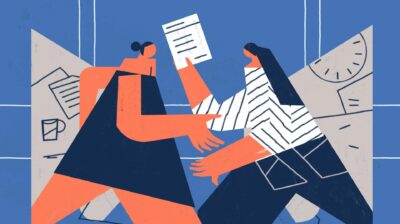How to explain gaps on your CV
Try to be honest when explaining gaps on your CV

If you have been out of employment or education for a period of time, potential employers might ask you for more information. Try not to worry if you are asked to explain the gaps on your CV. There are many reasons why you might have a gap in your employment or education and you are certainly not alone in your experience.
What is considered a CV gap?
A gap on your CV is a period of time when you were not employed or in education. Most employers are unlikely to notice short gaps, but they might ask you for more details about gaps that are longer than three months. If you have some gaps on your CV and have been invited to interview for a job, it is a good idea to be prepared to answer these questions. Keep in mind that a potential employer is more likely to focus on recent gaps than ones that happened a few years ago.
Will a gap in my CV make it harder to get a job?
There are many reasons why you might have a break in your employment or education history. It is possible that you experienced illness, went travelling, took on a caregiver role, lost a job or found it difficult to find a job. No matter what your experience is, know that your situation is completely normal. People of all ages have breaks in their employment and education and good employers will understand this. A gap on your CV will not prevent you from getting a job from one of these employers. While you may be asked to explain it, try not to focus on it or worry about it too much.
How to explain gaps on your CV
If you are asked to explain a gap on your CV, try to be as honest as possible if you are comfortable doing so.
Explain why you haven’t been in employment or education
There are plenty of reasons why you might have left your school, college or last job, or why you have not been able to find one. If the potential employer asks you about it, try to be honest about the reasons for the gap. It is ok to keep your response brief. If your break was due to health reasons or any other personal reasons, you can simply state this. You do not need to share any details and an employer should not ask you to do so.
Keep it positive if possible
If you had a break in your education or employment for a particular reason, it is a good idea to emphasise the positive things that resulted from the gap. For example, if you took a break to go travelling, it is possible that you gained new experiences and skills. If you lost your previous job, you can mention that you used the time off to learn new skills or read books related to your career field.
Try to highlight any positive things you may have done during that time. The following questions might help you to think of some:
- Did you learn a new skill or take up a hobby?
- Did you do any freelance work?
- Did you do any voluntary work?
- Did you complete any personal projects?
Focus on what is important
It is completely normal to be nervous about explaining a gap in your education or employment. However, it is important to remember that it is not the most important part of your application. An employer is interested in learning about your skills and experiences to date, and whether you will be a reliable employee. While it is good to be honest about any CV gaps, keep the focus of the conversation on the rest of your CV and cover letter.
Read more about how to write a CV.
Need more information?
We are here to answer your questions and talk through your options. Our online chat service is for 16 to 25 year olds and is available Monday to Friday, 4pm to 8pm. Chat to us now about your situation.
- Chat now to a trained Youth Information Officer
- Or leave us a message and we will email you back






